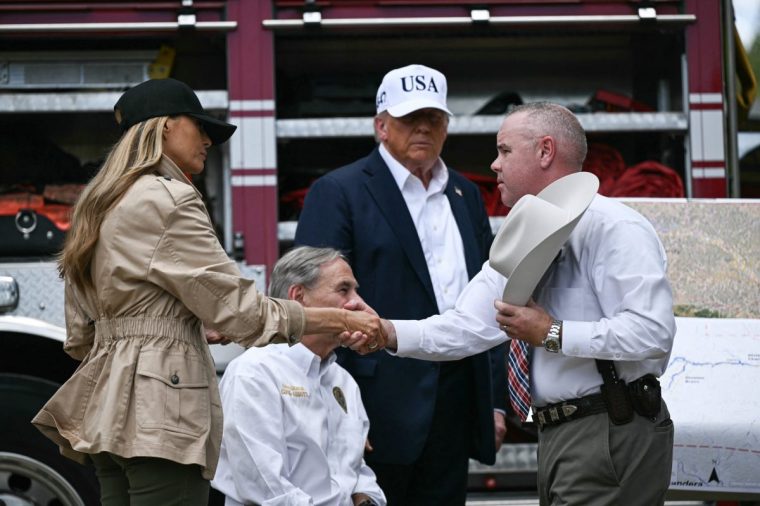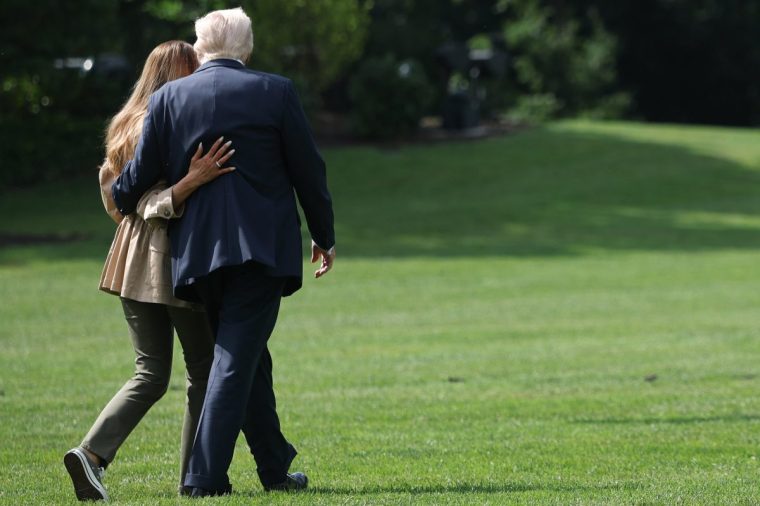Republicans say the First Lady deserves credit for influencing her famously stubborn husband
“I go home and tell the First Lady ‘I spoke with Vladimir [Putin] today. We had a wonderful conversation’,” Donald Trump said earlier this month: “She says ‘Oh really? Another [Ukrainian] city was just hit’.”
The President’s comments came the day he announced he would provide “billions of dollars” of US weapons to Ukraine in a deal paid for by European nations.
He added: “They feel strongly about it and we feel strongly about it, too.”
The announcement two weeks ago, as Trump met in the Oval Office with Nato secretary-general Mark Rutte, marked an astonishing turn-around in the way Trump viewed the war in Ukraine.
Four months earlier, in that very same, iconic office, he and Vice President JD Vance berated Ukraine president Volodymyr Zelensky and accused him of refusing to show flexibility when it came to negotiating with Russia.
But in the months since, Trump has become increasingly frustrated with the Russian leader, accusing him of not being serious about a deal and merely trying to prolong the war.
At one point in April he pleaded on social media: “I am not happy with the Russian strikes on KYIV. Not necessary, and very bad timing. Vladimir, STOP! 5000 soldiers a week are dying.”
Critics of Trump – who came into office having vowed to secure a ceasefire in just a day – suggested the President was finally learning that Putin was not someone to be easily won over.
One of those apparently helping change Trump’s perspective is his third wife, Melania Trump, 55, who was born in what is now Slovenia, but was previously part of Yugoslavia. It secured its independence in 1991.

Earlier this month, Meaghan Mobbs, the daughter of Trump’s special envoy Keith Kellogg, and who lives in Kyiv, wrote a comment piece for the President’s favourite tabloid, the New York Post.
She said Melania Trump’s reminders to her husband of the human cost of the war was not a rebuke.
“It wasn’t theatre. It was a simple, quiet act of moral clarity,” she wrote. “And it seems to have shifted the course of US policy.”
Kellogg suggested the First Lady was able to cut through the dense political and strategic considerations that Trump and other world leaders were having to make three years after Russia’s invasion.
“Her quiet reminder did what countless meetings and briefings struggled to do,” she said. “It reminded the President that Vladimir Putin is not a man to be trusted, and while he speaks, he bombs the innocent.”
After it was announced the US would agree to the weapons deal – a move that gave fresh hope to Ukraine and months of uncertainty – moderate Republican congressman Don Bacon told The Hill: “I think we owe Melania some thanks here. Even the President said that his wife reminds him every day that Russia is bombing Ukrainian cities every night.”

More confirmation of Melania’s influence has been suggested by the way Russian media launched a series of attacks on her, after the weapons deal was agreed.
The newspaper, Vzglyad, said to be supportive of the Kremlin, said in an op-ed “it would be better for him [Trump] to buy her shoes than to sell Patriot [missiles] to Kyiv”.
Melania has yet to comment on the behind-the-scenes role she may have.
Some Republicans in Congress who want to recognise Melania – or else secure favour with her husband – voted to rename an opera house at the John F Kennedy Centre for Performing Arts after the First Lady.
Earlier this year, she and Trump attended the opening night of Les Miserables at the centre after the President made himself its chairman and vowed to put an end to “woke” performances at the famous institution in Washington, DC.
Idaho Congressman Mike Simpson, who introduced the move, said in a statement: “Naming a theatre after [the First Lady] is an excellent way to recognise her appreciation for the arts.”
